Accreditation for CRA & CRC Certification Training
Clinical research accreditation provides public recognition of professional programs that meet established educational standards, as evaluated through initial and periodic reviews. Accreditation applies to clinical research certificate, bachelor’s, and master’s degree programs, rather than to individuals.
Accredited programs show overall compliance with standards for their respective degrees. Accreditation does not imply all programs are equivalent, as standards include both quantitative and qualitative parameters. Programs are evaluated on accomplishing stated goals and embodying clinical research as a unique health science profession with personal service.
Exact conformity in every detail is not required. Variations are expected, and strengths in some areas may compensate for deficiencies in others. Many programs exceed the Council’s standards in multiple elements of accreditation. Diversity and potential strengths are valued in clinical research education, as in American education overall. The accreditation process thus seeks to maximize strengths while ensuring basic quality expectations are met.
Clinical research accreditation provides international quality assurance, benefiting multiple groups:
- For the public, it ensures programs meet general profession expectations and are committed to continuously improving program quality and graduate competency. This raises the caliber of clinical research services available.
- For students, it signifies satisfactory preparation for a clinical research career.
- For institutions, it supplies a framework for self-evaluation, external review, and advancement. It also informs public and private agency decisions about grants and scholarships.
- For the profession, it allows practitioner input on requirements to enter the field.
IACCRE promotes quality education and high professional standards worldwide. It involves rigorous evaluation of programs against established standards to maximize strengths while ensuring basic quality expectations. This process serves to benefit the public, students, institutions, regulatory bodies, and the profession as a whole.


